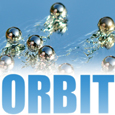Changes in Science education: Difference between revisions
No edit summary |
No edit summary |
||
| Line 7: | Line 7: | ||
|age=NA | |age=NA | ||
|content=1 Unit overview<br />2 What is science?<br />3 Problems of teaching the Nature of Science<br />3.1 Introduction<br />3.1.1 (A) Science and certainty<br />3.1.2 (B) Observation and measurement<br />3.1.3 (C) Scientific methods and critical testing<br />3.1.4 (D) Cause and correlation<br />3.1.5 (E) Historical development of scientific knowledge<br />3.1.6 (F) Creativity<br />4 Who is science education for?<br />5 Education for democracy?<br />6 The public understanding of science<br />7 A way ahead? – Beyond 2000<br />7.1 Introduction<br />7.2 Assessing the quality of data<br />7.3 Multiple interpretations in science<br />7.4 Modelling in science<br />7.4.1 Uses of models not made explicit<br />7.4.2 Assumptions within models<br />7.4.3 Modelling errors<br />8 What are the chances that scientific literacy will prevail? 9 Evidence of progress?<br />10 ‘Science for all?’ A look at some contexts<br />11 Primary science<br />12 Science in secondary schools<br />13 Post-compulsory science education<br />14 Final thoughts<br />Next steps<br />Glossary<br />References<br />Acknowledgements | |content=1 Unit overview<br />2 What is science?<br />3 Problems of teaching the Nature of Science<br />3.1 Introduction<br />3.1.1 (A) Science and certainty<br />3.1.2 (B) Observation and measurement<br />3.1.3 (C) Scientific methods and critical testing<br />3.1.4 (D) Cause and correlation<br />3.1.5 (E) Historical development of scientific knowledge<br />3.1.6 (F) Creativity<br />4 Who is science education for?<br />5 Education for democracy?<br />6 The public understanding of science<br />7 A way ahead? – Beyond 2000<br />7.1 Introduction<br />7.2 Assessing the quality of data<br />7.3 Multiple interpretations in science<br />7.4 Modelling in science<br />7.4.1 Uses of models not made explicit<br />7.4.2 Assumptions within models<br />7.4.3 Modelling errors<br />8 What are the chances that scientific literacy will prevail? 9 Evidence of progress?<br />10 ‘Science for all?’ A look at some contexts<br />11 Primary science<br />12 Science in secondary schools<br />13 Post-compulsory science education<br />14 Final thoughts<br />Next steps<br />Glossary<br />References<br />Acknowledgements | ||
|strategy=Providing an overview of current issues in UK science education, this unit examines what type of science the curriculum should cover and for what purpose. The unit will introduce | |strategy=Providing an overview of current issues in UK science education, this unit examines what type of science the curriculum should cover and for what purpose. The unit will introduce students to practical problems in the delivery of an effective science curriculum, and particular questions at all three educational tiers - primary, secondary and tertiary - will be touched on. | ||
|Learning Objectives= | |Learning Objectives= | ||
|additional resources= | |additional resources= | ||
Revision as of 11:14, 24 May 2012
About. 1 Unit overview
2 What is science?
3 Problems of teaching the Nature of Science
3.1 Introduction
3.1.1 (A) Science and certainty
3.1.2 (B) Observation and measurement
3.1.3 (C) Scientific methods and critical testing
3.1.4 (D) Cause and correlation
3.1.5 (E) Historical development of scientific knowledge
3.1.6 (F) Creativity
4 Who is science education for?
5 Education for democracy?
6 The public understanding of science
7 A way ahead? – Beyond 2000
7.1 Introduction
7.2 Assessing the quality of data
7.3 Multiple interpretations in science
7.4 Modelling in science
7.4.1 Uses of models not made explicit
7.4.2 Assumptions within models
7.4.3 Modelling errors
8 What are the chances that scientific literacy will prevail? 9 Evidence of progress?
10 ‘Science for all?’ A look at some contexts
11 Primary science
12 Science in secondary schools
13 Post-compulsory science education
14 Final thoughts
Next steps
Glossary
References
Acknowledgements
Pedagogical content. Providing an overview of current issues in UK science education, this unit examines what type of science the curriculum should cover and for what purpose. It introduces students to practical problems in the delivery of an effective science curriculum(topic), and particular questions at all three educational tiers - primary, secondary and tertiary - are touched on. The unit can be used to assist curriculum planning(topic) (edit)
| Resource details | |
| Title | Changes in Science education |
| Topic | [[Topics/Science Education|Science Education]], [[Topics/Science curriculum|Science curriculum]], [[Topics/Curriculum planning|Curriculum planning]] |
| Teaching approach | [[Teaching Approaches/|]] |
| Format / structure | 6 PDF, 2 JPEG and 2 MPEG Layer 3 audio files. |
| Subject | [[Resources/Teacher Education|Teacher Education]] |
| Age of students / grade | [[Resources/Higher|Higher]]
|
| Useful information | Part of the Teach and Learn series from the Open University, this unit is an adapted extract from the Open University course Contemporary issues in science learning (SEH806)
|
| Files and resources to view and download |
|

